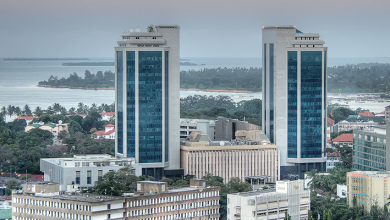Forland renews anti-deforestation measures

DODOMA: THE Forestry, Land Use and Value Chains Development Project in Tanzania (FORLAND) is intensifying efforts to curb deforestation by promoting sustainable wood value chains and eco-friendly furniture production.
The 20 million Euro project, launched in May this year under the Ministry of Natural Resources and Tourism, is focused on enhancing forest conservation, improving community livelihoods, stimulating economic growth and advancing sustainable forest management across Tanzania.
Speaking at the ongoing Nanenane Agricultural Exhibition at Nzuguni Grounds in Dodoma, the project’s coordinator Ms Emma Zunda said the initiative seeks to shift public perception that quality furniture can only be made from indigenous hardwoods an attitude that continues to drive deforestation of natural forests.
“We are working to change this mindset. People still believe that good furniture must come from natural forests, which leads to overexploitation of native trees we are supposed to protect,” the coordinator said.
As part of its interventions, Forland is supporting the Forestry and Wood Industries Training Centre (FWITC) located in Mafinga, Iringa Region.
ALSO READ: Arusha DC warns against deforestation
The centre specialises in the production of quality furniture using fastgrowing exotic tree species, as well as raising tree seedlings for reforestation and commercial forestry.
“At FWITC, we produce furniture from exotic tree species that match the quality of those made from indigenous hardwoods. These are species that can be planted and harvested within five years unlike indigenous trees that take over 40 years to mature,” the coordinator explained.
The project also supports the Tanzania Tree Growers Associations Union (TTGAU), enhancing community-based forestry enterprises and tree-planting initiatives.
Although the long-term goal is to reach international markets, the project is currently focusing on strengthening the domestic wood products market by promoting sustainable timber alternatives such as eucalyptus, pine and poles used in both construction and furniture making.
In addition to supporting value chain development, the Forland project prioritises conservation of natural forests and extensive planting of exotic trees to ease pressure on native forests.
“We want to make it clear, every type of tree matters. We cannot rely solely on natural forests for furniture or construction materials. That’s why we are also investing in exotic tree planting, which is more sustainable,” he said.
The coordinator emphasised that environmental protection is central to the project’s mission, particularly in the context of climate change, which has increasingly impacted weather patterns, rainfall and water sources.
“Forest conservation and tree planting are essential responses to climate change. We must continue to protect our environment and restore forest cover to sustain rainfall and groundwater systems,” he added.





